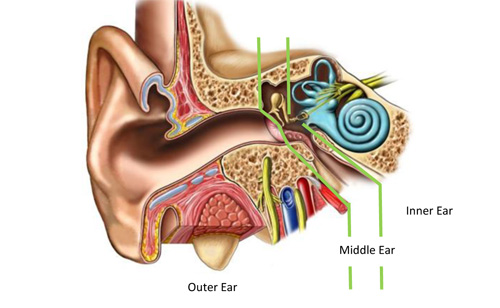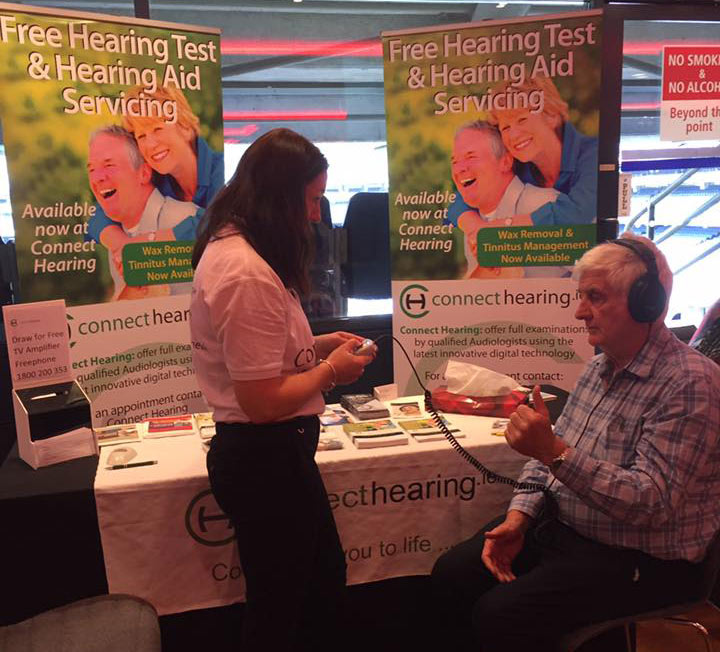Hearing Loss Explained
I didn’t realize how much my hearing loss was hurting the people around me
Many people suffer from hearing loss, not just the people whose ears are affected. Hearing loss affects friends, family, co-workers, business associates, and everyone a person with a hearing problem comes into contact with. Permanent acquired hearing loss of a significant degree affects one in 12 of the adult population in Ireland. In the over 70-age group this rises to some 50%. Thus, about a quarter of a million adults in Ireland will have a permanent hearing impairment, due mainly to ageing and/or noise exposure, which affects their quality of life, communication, social activity and participation to varying degrees.
The Numbers Explain the Need for Hearing Aids & Assistive Listening Devices
Are you someone who no longer hears as well as you once did? If so, you are certainly not alone. Consider these statistics:
50% of people over age 70 in Ireland have hearing loss
1 in 6 baby boomers (ages 41-59), or 14.6%, have a hearing problem
1 in 14 Generation Xers (ages 29-40), or 7.4%, already have hearing loss
At least 3,500 children (18 or younger) have hearing problems
Estimates say 3 in 1,000 infants are born with serious to profound hearing loss
In addition, studies have linked untreated hearing loss to emotional, physical, mental, psychological and even economic disadvantages.
Hearing Loss, The Types and Causes
 Having a hearing loss or hearing impairment means that your ability to hear has been diminished. There are many causes of hearing loss but it is commonly believed the most common cause is the ageing process. Although recently that assumption has begun to change. The name given for age related hearing loss is presbyacusis or acquired hearing loss. Presbyacusis is a subset of what is known as Sensorineural hearing loss. What is commonly called Nerve Deafness.
Having a hearing loss or hearing impairment means that your ability to hear has been diminished. There are many causes of hearing loss but it is commonly believed the most common cause is the ageing process. Although recently that assumption has begun to change. The name given for age related hearing loss is presbyacusis or acquired hearing loss. Presbyacusis is a subset of what is known as Sensorineural hearing loss. What is commonly called Nerve Deafness.
Sensorineural Hearing Loss
Sensorineural hearing loss normally occurs when the tiny hair cells in your cochlea (inner ear) that detect sound are injured, diseased, do not work correctly, or have died. Those haircells are in fact nerve endings that are responsible for send electrical stimulation to the brain. This type of hearing loss can't be reversed at this time. Sensorineural hearing loss can also be caused by some other problem post cochlea such as a tumour in the nerve of hearing.
Sensorineural hearing loss is commonly caused by:Presbyacusis.
Acoustic neuroma.
Childhood diseases, such as meningitis, mumps, scarlet fever, and measles.
Meniere's disease.
Regular exposure to loud noise which is called noise induced hearing loss. Noise exposure accelerates the natural deterioration of our hearing. Noise can do quite terrible and permanent damage.
A sensorineural hearing loss reduces the ability to hear faint sounds or discriminate speech. Even when speech is loud enough to hear, it may still be unclear or sound muffled. Speech is exceptionally difficult to hear in most cases if there are any competing sounds such as background noise.
Presbyacusis
Presbyacusis is an acquired sensorineural hearing loss which affects older people. Presbyacusis usually affects the mid and high frequencies, affecting speech discrimination. Presbyacusis is a gradual process, many factors could contribute to hearing loss such as noise in work, loud music, general environmental noise if you live in a noisy city, diet, ototoxic drugs, smoking, heart disease and stress.
Hearing loss affects around 10% of the population. In Ireland it means there are around 400,000 people with a hearing problem or hearing impairment. Only a small number of those who need a hearing aid system actually use one, putting themselves at many disadvantages and greatly reducing their quality of life.
There are many consequences of hearing loss physical, social and physiological. Hearing loss can lead to problems such as social exclusion, isolation from family and friends, depression, anger, stress, irritability, withdrawal, loneliness, embarrassment, denial, boredom, social rejection, feelings of inadequacy, misinformation, increased irritability, anxiety and fatigue.
Conductive Hearing Loss
Conductive hearing loss occurs when sound is not conducted efficiently through the outer ear canal through the eardrum and the tiny bones (ossicles) of the middle ear. Conductive hearing loss usually involves a reduction in sound level or the ability to hear faint sounds.Some possible causes of conductive hearing loss are
Fluid in the middle ear.
Ear infection (otitis media).
Otosclerosis
Perforated eardrum.
Impacted earwax.
Infection in the ear canal.
Swimmer's Ear.
Presence of a foreign body.
Absence or malformation of the outer ear, ear canal, or middle ear.
Mixed Hearing Loss
Sometimes a conductive hearing loss occurs in combination with a sensorineural hearing loss. In other words, there may be damage in the outer or middle ear and in the inner ear (cochlea) or auditory nerve. When this occurs, the hearing loss is referred to as a mixed hearing loss.
Untreated hearing loss has a great affect on life and relationships causing isolation and depression. There is a solution for almost everyone with a hearing loss, so if you think you have a problem get a hearing test and look at solutions. Nobody should suffer on
Want To Get Your Hearing Tested With No Pressure ?
Call 1800 848 888 or book your appointment on-line
Your company’s service, product and customer care has been excellent and we will not hesitate to recommend your company to family and friends should they have a need for a hearing aid in the future
Y & E Bradford - Stillorgan



